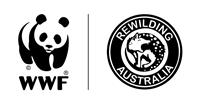Rebuild. Restore. Rebalance.
Rewilding Australia is WWF-Australia’s newest plan of action in our mission to Regenerate Australia by returning missing faunal links.
Australia is home to diverse ecosystems of unique flora and fauna found nowhere else in the world. But threats in our environment have led to the sobering reality that Australia now has the highest mammal extinction rate in the world.
To truly Regenerate Australia we need to move beyond just preventing further extinction and restore what we’ve lost.
By using science and Indigenous Ecological Knowledge (IEK) to restore Australia’s ecosystems we have the opportunity to future-proof Australia against this extinction crisis.
Our focus is on supporting strategies that test and scale-up successful methods to reverse the decline of our vulnerable keystone species. These species include our bandicoots, potoroos and bettongs, which play a vital ecosystem engineering role by digging and turning over soil, improving water penetrability and spreading fungi that are essential for assisting plant communities to absorb nutrients.
Digging also buries leaf litter, helping to further cycle nutrients into the soil while creating conditions for cooler less destructive bushfires. Other species like devils and quolls play a vital ecosystem regulator role, helping to break up and remove carrion from the landscape. We will also focus on species that are highly susceptible to invasive predators as well as those that are likely to be heavily impacted over time by changes to fire regimes and climate.
To help support the survival of keystone, fire and climate susceptible species, WWF’s Rewilding Australia will test strategies to increase resilience and adaptability to these current and future threats.
We’re excited to share our Rewilding Australia journey and hope you will join us in our mission to Regenerate Australia and save our native species. Find out more about our Rewilding Australia projects below.
